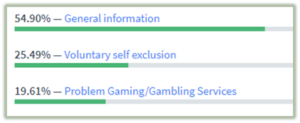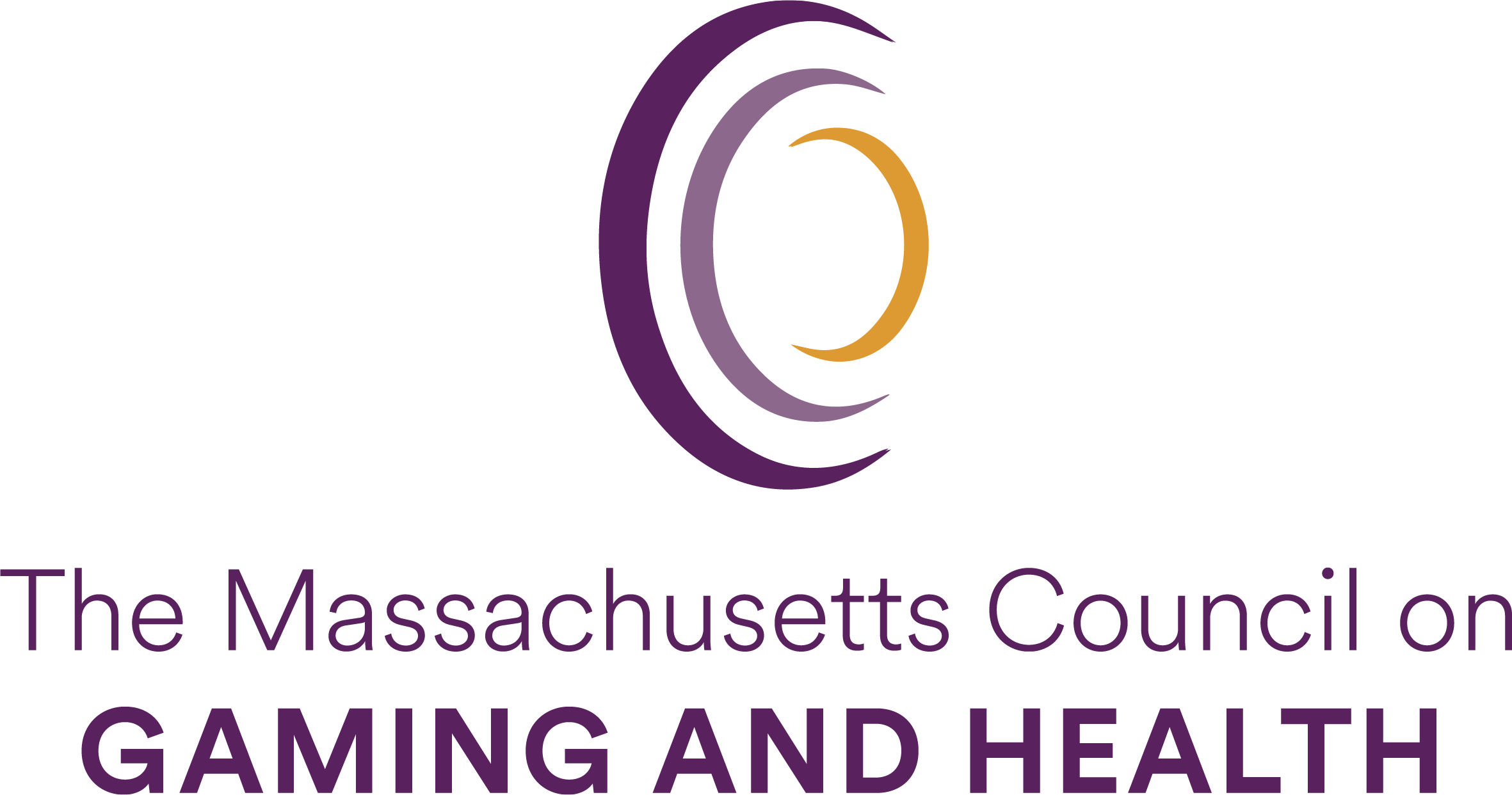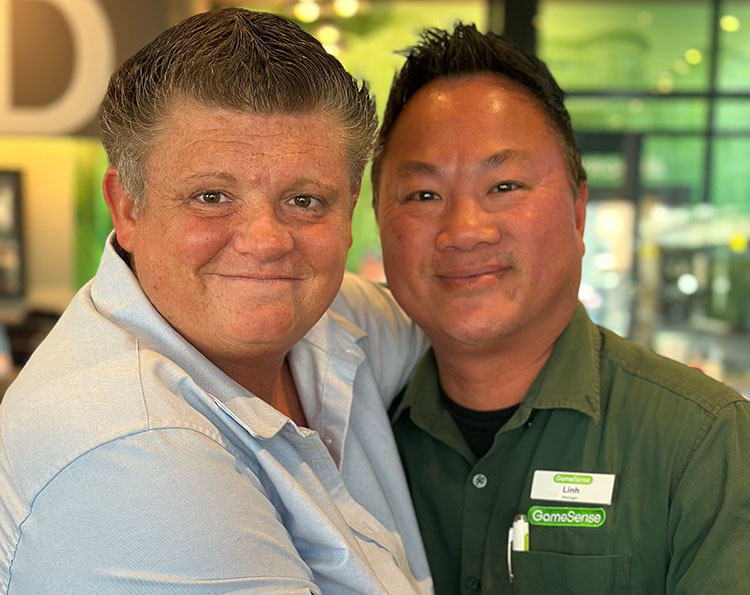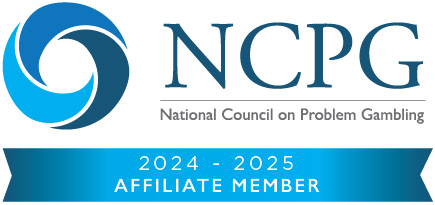[et_pb_section fb_built=”1″ _builder_version=”4.7.7″ min_height=”4171.6px” custom_margin=”0px||||false|false”][et_pb_row _builder_version=”4.7.7″ _module_preset=”default” min_height=”437.5px” custom_margin=”-55px||||false|false”][et_pb_column type=”4_4″ _builder_version=”4.7.4″ _module_preset=”default”][et_pb_divider _builder_version=”4.7.4″ _module_preset=”default”][/et_pb_divider][et_pb_text _builder_version=”4.9.4″ _module_preset=”default” custom_margin=”-20px||||false|false”]
- Online Lottery: New Pathways for Responsible Gambling – (Originally Prepared for the North American Association of State and Provincial Lotteries)
- WHO Renews its Pro-Gaming Campaign Despite New Research Indicating Increase in Risky Play – At the beginning of the pandemic in March 2020, The World Health Organization (WHO) launched an international campaign called #PlayApartTogether.
- Talking to a GameSense Advisor Just Got Easier – Although LiveChat allows GSAs and MACGH to converse remotely, 24/hrs. a day, via chat on a smartphone device or computer, GSAs can also be found at all three Massachusetts casinos on the gaming floor, or the GameSense Information Centers located inside the casinos.
- Kopel’s Corner: Review of Gambling Harms in Massachusetts – What is gambling harm, how is it defined, and how is it measured? This report looks at the multiple approaches to this concept and how this information can inform programming.
- Racial Justice and Health Equity Committee – The Massachusetts Council on Gaming and Health (MACGH) has a proud history of public health work and advocacy around gambling and gaming broadly.
- Upcoming Trainings– See our upcoming training opportunities HERE!
[/et_pb_text][et_pb_divider _builder_version=”4.7.4″ _module_preset=”default”][/et_pb_divider][/et_pb_column][/et_pb_row][et_pb_row _builder_version=”3.25″ background_size=”initial” background_position=”top_left” background_repeat=”repeat”][et_pb_column type=”4_4″ _builder_version=”3.25″ custom_padding=”|||” custom_padding__hover=”|||”][et_pb_text _builder_version=”4.9.4″ background_size=”initial” background_position=”top_left” background_repeat=”repeat”]
New Pathways for Responsible Gambling
 In the past 20 years, the responsible and problem gambling field has progressed tremendously in the science and interventions regarding online gambling. Initially, it was known as an unregulated market where people could fall prey to games and promises on servers sitting in a warehouse in the Caribbean, without a hint of responsible gambling. Then, in 2011, it quickly became a race to build the legal U.S. online gambling space, but with minimum standards based off nascent research. Responsible gambling advocates and service providers worried that players would be recluse, uninhibited, and anonymous in their play behavior and gaming approach.
In the past 20 years, the responsible and problem gambling field has progressed tremendously in the science and interventions regarding online gambling. Initially, it was known as an unregulated market where people could fall prey to games and promises on servers sitting in a warehouse in the Caribbean, without a hint of responsible gambling. Then, in 2011, it quickly became a race to build the legal U.S. online gambling space, but with minimum standards based off nascent research. Responsible gambling advocates and service providers worried that players would be recluse, uninhibited, and anonymous in their play behavior and gaming approach.
Fast forward to 2021. Roughly a quarter of North American lotteries offer many types of online products and do so with some of the most advanced responsible gambling tools available in the world, minimizing many of the harms that most worried the public and problem gambling professionals ten years prior.
Lotteries engage in processes that allow their players to not only have the best levels of KYC (know your customer) for security purposes, but also to customize interventions and education to what players most need. They can specify players’ normative behavior and demonstrate how an individual’s dashboard compares to the averages of others. Limit setting can happen for wins and losses, and players can pre-commit to time spent on the entire site or specific games. With technological advances, online lottery products can be customized to the type and speed of play that is most advantageous to the player’s goals. There are endless iterations and possibilities about adapting platforms and games to a safer and healthier customer-centric experience.
Although many lotteries have ventured into virtual product portfolios, some have done more than others to expertly hone their approach to responsible gambling while going online. Two such lotteries are those in Michigan and Kentucky, and to inform this article, they have shared their experiences going online, what works (and what does not), and what they hope to implement in the future to improve their responsible gambling efforts.
According to Blaine DeGracia, Responsible Gaming manager for the Michigan Bureau of State Lottery, and Chip Polston, Senior Vice President of Communications, Public Relations, and Social Responsibility for the Kentucky Lottery, the number one most important action to which both attribute their initial responsible gambling success online, was undergoing the iCAP verification program with the National Council on Problem Gambling (NCPG) under the leadership of Keith Whyte, NCPG’s Executive Director. Polston offered, “This was an absolute game changer – the iCAP program very clearly laid out what the elements of a highly responsible platform would look like, and basically gave us the road map to use moving forward.” Added Kentucky Lottery President and Chief Executive Officer Mary Harville, “We’re proud of our continued certification through the iCap program, and what that means for the safeguards we have in place with our iLottery program. Our work with the NCPG has been beneficial to help us learn online best practices and has helped make our initiatives better and more effective.”
The iCAP, or Internet Compliance Assessment Program, uses the latest scientific literature to inform responsible gambling guidelines used to verify the compliance of a Lottery’s internet gambling site with the NCPG Internet Responsible Gambling (IRG) Standards. IRG Standards include a framework to guide lotteries to success in the following areas:
- Policy to instruct and support teams in the implementation of lottery-wide responsible gambling programs and practices that instill confidence with customers, employees, and regulators
- Staff Training and professional development models that detail how to engage employees in knowledge and skill set advancement to best help customers in need
- Informed Decision platforms that offer options to players to gather personal play-based data that allows them to customize limit-setting and messaging
- Player Assistance mechanisms, protocols, and resources built into customer service and other public-facing staff responsibilities
- Self-Exclusion programs that detail the responsibility of the operator, regulator, and the employee in this helping intervention
- Advertising and Promotion guidelines that provide the guardrails for what is and is not appropriate and how it should be applied based on the prevalence of problems in priority populations
- Game and Site Features that remain based in adult-focused, chance-based games that are designed to be fun and entertaining
- Research agendas that support innovation in the field using anonymized data, suggests change from evaluation, and utilizes evidence-based research to determine games and mechanics
- Payments accepted in a controlled and cash-based model with personal data protected
While incredibly useful for any lottery going online, the iCAP verification process is not for the faint of heart. The program requires assembling and creating detailed descriptions of policies, procedures, and user interfaces, with reference to each of the IRG standards, conducted by Sarah Ramanauskas, an independent specialist testing partner with Gambling Integrity, based in the UK. Although he described it as “tough,” DeGracia couldn’t say enough about the assistance of Ramanauskas: “Sarah, as an auditor, was an enormous help. She was on onsite and with us every step of the way in our effort to best protect the player.” And Polston stressed the benefit of access to outside expertise, “Through our three assessments, we’ve found it helpful to have a different set of trained and professional eyes review what you’re doing from the outside to make sure your program is effective as it can be and needs to be.”
Four lotteries currently have achieved iCAP certification – Georgia, Kentucky, Michigan and Pennsylvania. The certification typically takes four to five weeks and costs $10,500 for NCPG Members ($12,000 for non-members) with a rolling deadline. Although a lottery can potentially not “pass” the certification, they are able to reapply with an “improvement plan.” Ramanauskas works with each entity to tweak and change some of their offerings to best meet the standards. As they encourage more online lottery and sportsbooks to go through iCAP verification process, Whyte states, “We hope iCAP has created a default lottery basic minimum standard that is helpful for consumers, lotteries, and their vendors. There is no downside to a high standard that helps everyone and is consumer-centric.” Whyte and Ramanauskas assume the next step for iCAP is to consider mobile gaming verification.
The most important aspect of any of the IRG standard programs, according to Collins, has been training. He discussed NPi’s annual responsible gambling training that walks employees through scenarios and brings staff up to date on current research and interventions. He stressed how key it is that his staff is well trained to confidently speak to players about deposit limits, voluntary self-exclusion, odds and game rules. They want to help not only customers but also educate them. NPI trains employees on the gambling content but also spends time helping them to develop skills to assess the most effective ways to make a trusted connection – there are specific ways to gain trust and build rapport on a chat line vs. an email exchange. Both are important to balance for tone, empathy, and succinct information dissemination.
NPi’s approach to making sure that employees use care and evidence to help to correct players’ erroneous beliefs was recently confirmed by researchers at University of British Columbia, who found that individuals with gambling problems are more likely to use incorrect or irrelevant information to guide their gambling and more likely to benefit from an online lottery algorithm that can identify their play as problematic (Limbrick-Oldfield et al).
Michigan has also found research to be paramount to striking the appropriate balance in product development and marketing, informing program changes in their self-exclusion program, and pathways to information on their website. DeGracia outlined their commitment to learning from their customers through focus groups and player surveys and collecting data used to alter future lottery products.
And it appears Michigan is on the right track. The necessity of play-based behavior tracking and research was highlighted in a French study done by Challet-Bouju et al in 2020, where researchers found that there are five different types of play based on behaviors tracked on an online lottery site, and each type of play required different types of interventions to improve the health of the player.
DeGracia, Polston, and Collins all agreed that more personalization and the ability to make informed choices is where they most hope to see an increase in the future. DeGracia stated, “In 2019 we were able to bring the native clock from their online device forward to be seen during the game. From here, we’d love to have more industry standards and language to help players track their play.” Polston discussed Kentucky’s need for more useful resources and interaction with self-excluded players who come back to the site after their term has expired. “We’re currently working on messaging we’ll send them after their account is reactivated. This is the type of insight we get by going through an [iCAP] assessment which helps us create a wish list of what we can do to make our operation even better.”
In terms of what Whyte and Ramanauskas see for iCAP on the horizon? They hope that iCAP has evolved to include broader public health engagement with behavioral tracking and messaging, more mystery shopping and customer engagement, and a broader acceptance of the need for third-party evaluators and verification.
It is worth noting that although many lotteries are using the pandemic and the explosion of sports wagering to rush to online sales, DeGracia, Polston, and Collins all agreed that leadership and planning is essential to make responsible gambling work. They all reiterated that a top-down approach to the standards, the iCAP program, and communicating that commitment is what allowed them each the space to create and promote effective, responsible gambling programs.
Ten years ago, no one could have imagined the innovation possible in online gambling and online responsible gambling tools. With evidence-based standards and cooperative approaches between lotteries, regulators, service providers, researchers, and advocates, it is clear that the future holds much in the way of customized player tools and data informed messaging that will build a solid foundation to keep gambling as it was intended, as fun and entertainment.
For more information on iCAP or the IRG Standards, visit www.ncpgambling.org. To learn more about online lottery research and interventions, contact the NASPL RG Committee.
By Marlene Warner, Executive Director, Massachusetts Council on Gaming and Health
WHO Renews its Pro-Gaming Campaign Despite New Research Indicating Increase in Risky Play
 At the beginning of the pandemic in March 2020, The World Health Organization (WHO) launched an international campaign called #PlayApartTogether. The WHO joined with 18 of the world’s biggest game industry leaders promoting video gameplay as a way to safely combat social isolation during the COVID-19 crisis. After contention following the 2019 WHO decision to designate video game addiction as an official mental health disorder, this new partnership marked a shift in the relationship between the gaming industry and the WHO. Chris DeWolfe, Co-founder, and CEO of Jam City announced his company’s involvement in the partnership. “Jam City knows that many are turning to games for stress relief and a little joy during these perilous times. As a game company with tens of millions of players, we call on everyone to #PlayApartTogether to flatten the curve and put an end to COVID-19.”
At the beginning of the pandemic in March 2020, The World Health Organization (WHO) launched an international campaign called #PlayApartTogether. The WHO joined with 18 of the world’s biggest game industry leaders promoting video gameplay as a way to safely combat social isolation during the COVID-19 crisis. After contention following the 2019 WHO decision to designate video game addiction as an official mental health disorder, this new partnership marked a shift in the relationship between the gaming industry and the WHO. Chris DeWolfe, Co-founder, and CEO of Jam City announced his company’s involvement in the partnership. “Jam City knows that many are turning to games for stress relief and a little joy during these perilous times. As a game company with tens of millions of players, we call on everyone to #PlayApartTogether to flatten the curve and put an end to COVID-19.”
While research has shown that “moderate” gaming can provide a mental boost – moderate means less that one hour a day for kids and 2 hours a day for adults. The question of whether on-line gaming meets the emotional need for human connection has been discussed by researchers and clinicians in recent years. Despite the promise of #PlayApartTogether, online gaming does not provide the markers of interconnectedness needed for humans to flourish. Imagine a malnourished person with a bottomless bag of Skittles. The candy and the gaming provide, at best, an extremely short-term fix for a human in crisis. (Quote from expert here)
But if extended gameplay is the yard stick, #PlayApartTogether has been a success. The State of Online Gaming – a 2021 survey of 4,000 people 18 years and older in eight countries – asked how gaming habits had changed in the past year since the pandemic began. According to the study, gaming has increased over the course of the pandemic. There was a 14% increase in gaming time per week gaming with the average time being 8 hours and 27 minutes of play. 25% of these players report gaming more than 12 hours per week. Of more concern is the 13% increase in “binge gaming” reports where players game for 5 or more hours in one sitting. About a third of respondents said they miss showering, eating, and socializing to play – all of which are signs of at-risk play. Nearly half of respondents reported gaming during work hours.
Despite this concerning data, on April 13th, 2021 The World Health Organization, now joined by an additional 70 gaming companies, announced the renewal of the #PlayApartTogether campaign. With no guidelines for parents or adult players on safe play, or how to get help if gaming becomes problematic, #PlayApartTogether feels more like an industry-led initiative than a public health campaign. What remains clear is the need to offer treatment for roughly 3% of video game players who will experience addiction. The Mass Council is committed to training clinical providers on assessment and treatment for both Gaming and Gambling Disorder. To learn more about our Gaming Health Specialist Certificate please visit: https://macgh.org/trainings-events/certificate-program-gaminghealthspecialist/
By Odessa Dwarika
Talking to a GameSense Advisor Just Got Easier
 A little more than a month ago, MACGH successfully launched LiveChat, an online chat platform that allows the public to chat remotely with GameSense Advisors (GSAs) and MACGH staff. Perhaps you have a question about the odds of roulette, are curious about how the house edge works with slot machines – or maybe you’re looking for assistance in taking a break from gambling and want to learn more about the Voluntary Self-Exclusion program (VSE). GSAs and MACGH staff are trained to answer these questions and more!
A little more than a month ago, MACGH successfully launched LiveChat, an online chat platform that allows the public to chat remotely with GameSense Advisors (GSAs) and MACGH staff. Perhaps you have a question about the odds of roulette, are curious about how the house edge works with slot machines – or maybe you’re looking for assistance in taking a break from gambling and want to learn more about the Voluntary Self-Exclusion program (VSE). GSAs and MACGH staff are trained to answer these questions and more!
We’re excited about this new tool and we’re optimistic it will prove to be increasingly helpful in the future – especially with gambling activities increasingly moving online. During the first six weeks of LiveChat, GSAs and MACGH staff fielded around 150 chats. The conversations ranged from addressing questions from clinicians about upcoming trainings, players who had questions about the rules of a casino game, and individuals seeking information about (VSEs). In fact, during this time, GameSense conducted four VSEs for individuals generated from LiveChat!
Subject Matter of Interest for Chatters Over the first 6 Week Period:

VSEs allow participants to voluntarily exclude themselves from the gaming floor of all Massachusetts casinos for a pre-determined length of time. It can be an effective tool for individuals looking to take a break from gambling at the MA casinos. In addition, remote VSE enrollment can now be utilized by anyone who is unable or uncomfortable enrolling in person!
Although LiveChat allows GSAs and MACGH to converse remotely, 24/hrs a day, via chat on a smartphone device or computer, GSAs can also be found at all three Massachusetts casinos on the gaming floor or the GameSense Information Centers located inside the casinos.
And on the casino floor is where the GSAs do most of their work. As excited as we are about the introduction of LiveChat, the bulk of a GSAs activity is engaging with individuals face-to-face. In fact, in March alone, the GSAs had over 8,000 responsible gaming conversations with casino guests and employees as part of Problem Gambling Awareness Month (PGAM).
While we welcome the new technology, we want to meet the needs of those who still want to pick up the phone, and that’s why we have a 24/hr phone line as well where you can talk with a GSA about your gambling-related questions. The Safer Gaming Education Line number is 1-800-426-1234.
LiveChat can be accessed by visiting www.macgh.org or www.gamesensema.com, and we look forward to hearing from you.
By: Chelsea Turner
Kopel’s Corner: Review of Gambling Harms in Massachusetts
 Review of Gambling Harms in Massachusetts: Evidence from the BGPS and BOPS
Review of Gambling Harms in Massachusetts: Evidence from the BGPS and BOPS
What is gambling harm, how is it defined, and how is it measured? This report looks at the multiple approaches to this concept and how this information can inform programming.
Over the past 25 years or so, researchers have identified and categorized seven harms associated with problem gambling: financial, health, mental health, family or relationship issues, work/school problems, participation in illegal activities, and multiple harms.
Identifying gambling harms was typically a clinical assessment of a person who suffered from a gambling disorder. More recently, there has been a shift to a more public health perspective to not only consider the problem gambler, but also those immediately affected by the problem gambler, and the effects on the community as a whole.
In this report, the UMass SEIGMA team incorporated their Problem and Pathological gambling measure (PPGM) into their Baseline General Population Survey (BGPS) and Baseline Online Panel Survey (BOPS), to develop an integrated dataset of regular gamblers. With this information, they analyzed the likelihood of regular gamblers from varying demographic groups to endorse the differing gambling harms.
AGE – Younger regular gamblers (18-30) were the age category more likely to experience financial harms, health harms, mental health harms, family issues, and commit illegal acts than all older age groups. This younger group were also much more likely to endorse multiple harms than those who are older. With respect to trends, regular gamblers are less likely to experience harms as they age.
GENDER – Male regular gamblers were significantly more likely to experience financial harms, health harms, and one or more gambling harms compared to females.
RACE/ETHNICITY – White regular gamblers endorsed significantly fewer harms related to gambling than the other demographic groups. Latinos and Blacks reported significantly more health-related harms, mental health harms, and family/relationship harms compared to Whites.
HOUSEHOLDS WITH CHILDREN – Regular gamblers, if they live in households with children, they are more likely to endorse all of the harms discussed (1 or more harms, Financial, Health, Depression/suicide, Family/relationship, Work/school and Illegal acts), compared with regular gamblers with no children in their household.
Understanding the demographic implications that correlate with these higher rates of problem gambling harms, support the need for professionals and counselors to improve their screening of problem gamblers. Further, this information is useful to raise awareness and promote services related to these harms among those negatively affected by a problem gambler and the community.
CITATION: Volberg, R.A., Evans, V., Zorn, M., Williams, R.J. (2020). Gambling Harms in Massachusetts: Evidence from the BGPS and BOPS. Amherst, MA: School of Public Health and Health Sciences, University of Massachusetts Amherst.
A PDF OF THIS REPORT CAN BE DOWNLOADED AT: www.umass.edu/seigma
Racial Justice and Health Equity Committee
Effective public health work requires addressing the social determinants of health that lead individuals to struggle with gambling, gaming and other addictions. These social determinants include, but are not limited to: racial injustice, poverty, insecure immigration status, homophobia and unequal educational opportunities. Because MACGH is an agency focused on public health and welfare, it is incumbent upon us to acknowledge and address these social determinants and work towards eradicating all factors that contribute to a disproportionate prevalence gambling disorder in certain communities. In 2019 we began work that would lead to the creation of the Racial Justice and Health Equity Committee (RJHEC). This Committee includes staff from all levels of the organization and meets regularly to address actionable items for Racial Justice and Health equity in the following three areas: Systemic/Societal/Institutional, Organizational Culture and Individual/interconnectedness.
Our first priority was to build a shared language to discuss issues of racial justice and health equity across the organization. To that end we hold bi-monthly trainings for all staff and share resources on a monthly basis. We also review all communication, training and programming to ensure that our work in every department reflects our understanding of racial justice and health equity as the key to creating healthy communities. By Fall of 2021, we plan to have an evaluation mechanism to measure the impact of the RJHEC efforts and to develop new initiatives that reflect these priorities. We will also provide helpful information, articles and personal stories in our newsletters to come. Stay Tuned!
[/et_pb_text][/et_pb_column][/et_pb_row][/et_pb_section]





